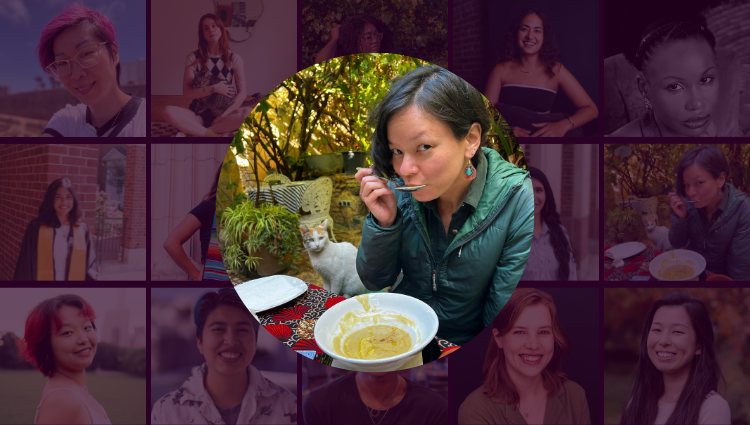Nimarta Narang was one of our 2024 Digital Residents. As a part of this program, we do Q&As with our residents to feature them, their work, and their words. See our Q&A with Nimarta below, and explore more Spotlights here.
TSW: Tell us about your work, writing, or project. What are you writing these days? How is your work changing, and how is it changing you?
Nimarta Narang: As a first-generation immigrant in America and a first-generation college student, I had to be resourceful to get my foot in the door for various opportunities. It was a lonely experience but I want to explore what I have learned in my writing. I write about the notions of belonging, otherness, and inclusion. I write about loneliness. Most importantly, I write about my Thai Indian community. Ours is a community, like all, that is complex, layered, and rich. It is a community that deserves to be written about, and I believe that I can bring the nuance and context. Selfishly, writing about them helps me process my own place in the world as someone who is somewhat tethered to more than one country.
Currently, I have been experimenting with short stories. I arrived in the short story form because of how the people in my community tell stories. They have an anecdote to share with people they meet up with always. This person did that. That person’s daughter did this. There is a beginning, middle, and end that is so precisely crafted that it becomes hard to know when the embellishments are threaded in. With each re-telling of the story, the more stretched the fabric becomes in its wash that it suddenly becomes a whole new color and texture. That is how the short story feels to me — tightly constructed narrative where details inevitably get shuffled around with some that get left behind.
TSW: What were you processing during our residency program? Did anything unlock for you? If so, what new entrance did you find for your work or for yourself as a writer in the world? And what caused that shift?
NN: I endured a concussion about halfway through the residency and spent the remainder of the sessions with the camera off to avoid the screen. It became more difficult for me to participate and to take notes, and I will admit, I was quite frustrated. I normally use my laptop to write and at the time felt helpless at first as I was beholden to my throbbing head. My doctor and a cohort member recommended listening to audiobooks, and I resisted. I was already someone who found it difficult to listen to podcast episodes during exercising or commuting — I found that I was unable to pay close enough attention as I was distracted by visual stimuli.
But this time, something changed. I was forced to pay attention to the cadence of sounds. The way my cohort members would read aloud their work. The intonations used in audiobooks. I focused on the delivery of the words and the rhythm of the language. I began looking forward to listening to audiobooks. It changed the way I consumed literature in its auditory form.
TSW: What’s a mantra or motto that you have in mind these days when you are writing or creating? Is there a writing routine or ritual that keeps you beginning?
NN: Since the concussion, my writing routine has been completely nonexistent. I was never one to adhere to a strict routine before and now it has become even more cumbersome. So a mantra or motto I keep in mind is something as simple as, just write whenever you can. Sometimes, I wake up in the morning with 20 minutes to spare before I begin work. Other times, I take my lunch hour to pen a quick thought. Or, I spend about 30 minutes post-dinner to free-write a passage or section I’m curious about.
TSW: What is something that someone said — a fellow resident, a past mentor, perhaps something from one of the bonus sessions — that helped change the way you see your writing or work?
NN: During our bonus session, Melissa Febos said that she “tunes [her] ear to [her] own honesty” when writing. I don’t quite remember the context in which she shared the sentiment but I remember this particular phrase. It left an impact as it articulated how I feel when I try to write. Whenever I write something, if isn’t tuned into my own honest feelings or thoughts, the words feel off — sometimes to the point where my trusted friends who read my work can tell that I’m not as present in the particular piece. Tuning my ear to my own honesty keeps my writing from feeling perfunctory.




